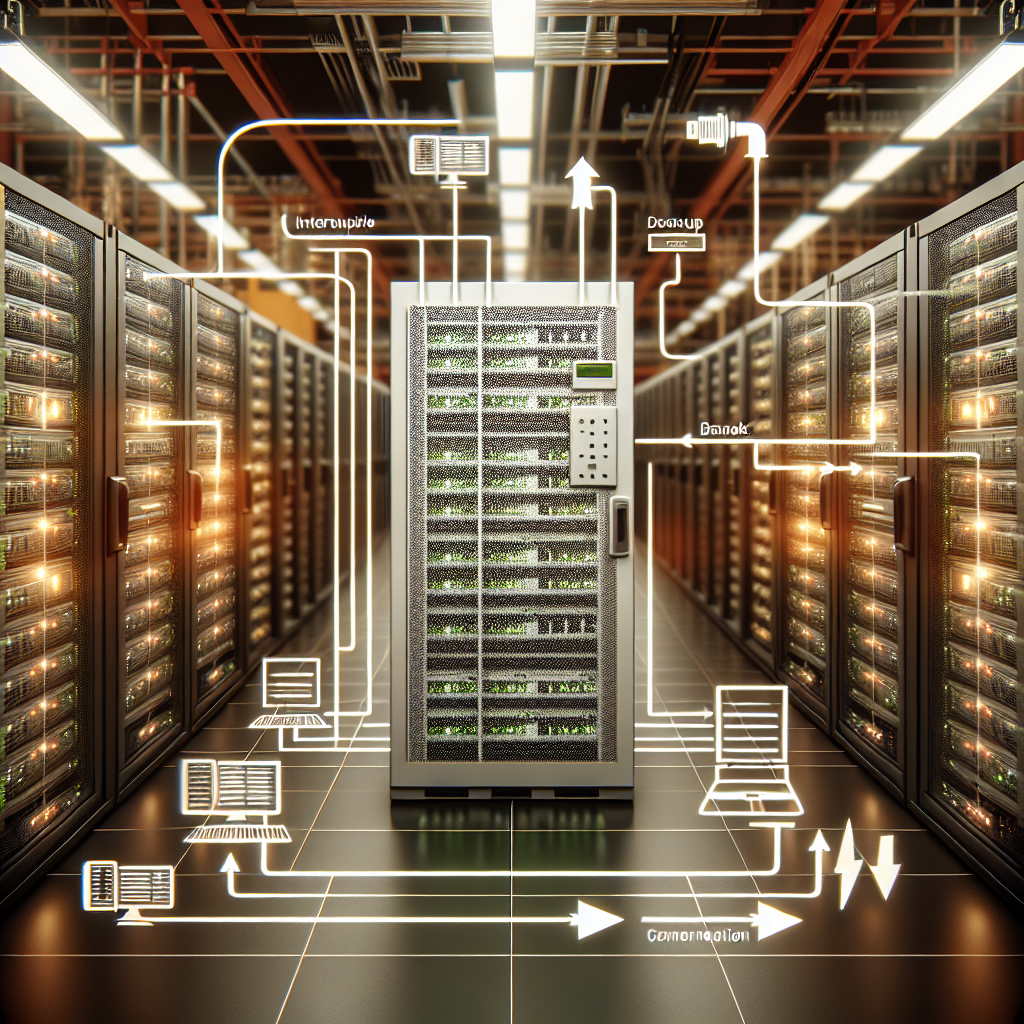Your cart is currently empty!
The Role of Backup Power Systems in Data Center Electrical Infrastructure

Data centers are the heart of modern technology, housing servers, networking equipment, and storage systems that store and process vast amounts of data. The smooth operation of a data center is crucial for businesses, as any downtime can result in significant financial losses and damage to reputation. One of the key components of a data center’s electrical infrastructure is backup power systems, which ensure that critical operations continue running in the event of a power outage.
Backup power systems come in various forms, with the most common being uninterruptible power supply (UPS) units and generators. UPS units provide short-term power backup through batteries or flywheels, allowing data center operators to safely shut down equipment or switch to generator power during a blackout. Generators, on the other hand, provide longer-term power backup by running on diesel or natural gas, ensuring continuous operation for extended periods of time.
The role of backup power systems in data centers is multifaceted. Firstly, they provide protection against power outages, which can be caused by grid failures, severe weather events, equipment failures, or human error. By ensuring a constant power supply, backup power systems prevent data loss, downtime, and potential damage to hardware.
Moreover, backup power systems play a crucial role in maintaining data center uptime and reliability. As data centers are expected to operate 24/7, any interruption in power supply can have far-reaching consequences. By investing in reliable backup power systems, data center operators can guarantee uninterrupted service to their customers and uphold their service level agreements.
In addition, backup power systems are essential for ensuring data center resilience and disaster recovery. In the event of a natural disaster or other catastrophic event, backup power systems can keep critical operations running, enabling data centers to continue serving their customers and maintaining business continuity.
Furthermore, backup power systems are crucial for compliance with industry regulations and standards. Many data centers are required to have backup power systems in place to ensure the safety and security of data, as well as to meet uptime requirements set by regulatory bodies.
In conclusion, backup power systems are an essential component of data center electrical infrastructure, providing protection against power outages, ensuring uptime and reliability, supporting disaster recovery efforts, and facilitating compliance with industry regulations. As data centers continue to play a vital role in the digital economy, the importance of investing in robust backup power systems cannot be overstated.

Leave a Reply